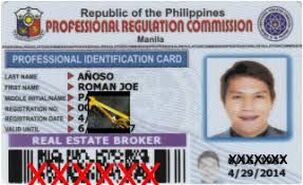How to Prevent Penalty for Property Title Transfer - Lot, House & Lot, CondoAfter agreeing to a sale of a property, whether a lot, house and lot or a condo, the buyer and seller should close the deal thru a Deed of Absolute Sale. The seller or buyer should also pay the necessary taxes to completely transfer the property title from the seller to the buyer.
Only then can the buyer obtain the Torrens Title. Also known as a Certificate of Title, it’s a Certificate of Ownership proving the ownership right of an individual. Thus, it’s essential to register the Deed of Absolute Sale and property title transfer from the seller to the buyer. But what happens when you fail to pay the taxes on time? Read on as we share the late payment penalty for property title transfer and how you can avoid such charges. 1. Delayed Capital Gains Tax (CGT) Once a Deed of Absolute Sale has been created, the next step is to obtain a Certificate Authorizing Registration (CAR). This is issued by the Bureau of Internal Revenue (BIR), which serves as a tax clearance and is required to transfer property title in the buyer's name. Moreover, the Capital Gains Tax should be paid 30 days after the Deed of Sale notarization. To pay the Capital Gains Tax, the seller should pay the tax at the BIR Revenue District Office (RDO), which has jurisdiction over the property's location. But if you fail to pay the said tax, you have to pay the following penalty:
2. Delayed Documentary Stamp Tax (DST) Before BIR issue the Certificate Authorizing Registration (CAR), the Documentary Stamp Tax should also be settled. It should be paid on or before the 5th day of the following month. For instance, if the Deed of Sale was notarized on January 31, 2023, the Documentary Stamp Tax should be paid on or before February 5, 2023. Like Capital Gains Tax, the Documentary Stamp Tax can be paid at BIR RDO, which has jurisdiction over the property's location. On the other hand, if you're unable to settle the payment for Documentary Stamp Tax, you should pay the following penalty:
3. Delayed Transfer Tax Fee After the Deed of Sale notarization, the Transfer Tax Fee should also be paid within 60 days. The Transfer Tax Fee can be paid at the Local Government Unit (LGU) Treasurer's Office, which has jurisdiction over the property's location. To pay the Transfer Tax Fee, secure the following requirements:
However, if the seller or transferor didn’t pay the Transfer Tax Fee on time, you should pay the following penalty:
Wrapping Up Do note that the penalty is based on the tax plus the surcharge. For example, if your Capital Gains Tax is P100,000 and there's a surcharge of 25%, the penalty would be P25,000 for Capital Gains Tax alone. There's also the Documentary Stamp Tax, Transfer Tax Fee, late payment penalties, and interest. So after notarizing your Deed of Sale, I advise you to head straight to BIR and LGU Treasurer's Office to settle the payments and avoid any penalty and interest rate.
0 Comments
Fees and Taxes to Pay to Transfer Property Title (House and Lot, Condo, or Land)Whether buying a house, condo, or land, you should pay several taxes and fees to transfer the property title. If you're the buyer, knowing what fees you should pay is essential to prepare your finances, ensuring you have enough funds available.
But what are the fees you should pay when transferring a property title? Keep reading to learn about the 4 major fees you should pay to transfer property title. 1. Documentary Stamp Tax The Documentary Stamp Tax (DST) should be paid during a sale or transfer of a property, indicating the official transaction between the involved parties. Also, a DST signifies an original document and 1.5% (0.015) of the property value. Let’s say, for example, the market value of the property you’re planning to buy is P1,000,000, and it's higher than the zonal value. When we compute it, 1.5% of P1,000,000 is P15,000. So if you're the buyer, you should include it in your budget. 2. Transfer Tax Fee Secondly, the buyer should pay the Transfer Tax Fee. It's 0.5% (0.005) of the selling price, market value, or zonal price, whichever is higher. However, this percentage only applies to properties in the province since the Transfer Tax Fee in Metro Manila goes up to 0.75% (0.0075). If you’re purchasing a property in the province with a P1,000,000 market value, the Transfer Tax Fee will amount to P5,000. But in Metro Manila, the Transfer Tax Fee would be P7,500. 3. Registration Fee (fixed) Apart from taxes, the buyer should pay the Registration Fee, a fixed amount based on the table of fees from the Registry of Deeds. The Registration Fee is often 0.25% of the market value, zonal value, or selling price, zonal value, whichever is higher. Nonetheless, a property with a market value of P1,000,000 has a fixed Registration Fee of P5,736. So it’s ideal to check the fees directly from the Registry of Deeds. 4. Notarial Fee According to the Integrated Bar of the Philippines, the Notarial Fee reaches up to 3% of the total selling price. But the commonly computed fee is only 1% (0.01). For a property worth P1,000,000, the notarial fee would be P10,000. When totaled, the buyer should pay P35,736 fees if the property is in the province or P38,236 in Metro Manila. Note that we didn't include the Capital Gains Tax in this computation. It's the largest tax required when transferring a property title. Usually, the seller pays for it instead of the buyer. The Capital Gains Tax is 6% (0.06) of the property value or P60,000 for a P1,000,000-worth property. On the other hand, the buyer can also pay the Capital Gains Tax depending on the agreement with the seller. Furthermore, transferring a property title will include minor fees, like securing or printing certificates. If you're busy, you can hire a broker or salesperson and pay them a processing fee to complete the paperwork. Nonetheless, this is only optional since you can transfer the property title yourself. Lastly, it's important to discuss thoroughly with the seller who should pay this and that before proceeding with the transaction. Summary: Transferring a property title is time-consuming and requires a lot of paperwork. If you're the buyer, you should also have enough finances to transfer the rights and ownership of the property under your name. Thus, it's necessary to understand what fees you should prepare for during the transfer process before you seal the deal. |
Archives
July 2024
Categories
All
|
Hi! Welcome to our website. Having an agent/broker on your real estate search is a gift because with or without them the price of the property is always the same. They give you FREE SERVICE and only pure service. On your part, everything is to gain. Claim your gift now! :)
meet your Real estate Broker Partner:
Roman Joe Anoso, RN, REB
Real estate Broker PRC license number: 19887
HLURB registration number: CAR-B-05/21-029
HLURB registration number: CAR-B-05/21-029
Roman joe Anoso is a multi-awarded real estate broker, consistent Top #1 for 8 years to date, being recognized by the following companies:
Suntrust Properties, Inc.
- Overall Nationwide Top # 1 Real estate broker year 2018:
Vista Residences, Inc.
- Overall Nationwide Top # 1 Real estate broker year 2017:
Goshen Land capital, inc.
- Overall Nationwide Top # 1 Real estate broker year 2011 to 2016:
Suntrust Properties, Inc.
- Overall Nationwide Top # 1 Real estate broker year 2018:
Vista Residences, Inc.
- Overall Nationwide Top # 1 Real estate broker year 2017:
Goshen Land capital, inc.
- Overall Nationwide Top # 1 Real estate broker year 2011 to 2016:
office address: REALS Corporation, Barangay Dontogan, Baguio city, 2600
personal: +63917-5645-863
viber/whatsapp: +63917-5645-863
add him on facebook (CLICK HERE)
office landline: 074-442-2353 (for clearer conversation)
email: [email protected]
skype: romankat2
website: www.realestatebaguio.com
personal: +63917-5645-863
viber/whatsapp: +63917-5645-863
add him on facebook (CLICK HERE)
office landline: 074-442-2353 (for clearer conversation)
email: [email protected]
skype: romankat2
website: www.realestatebaguio.com
official Real Estate Brokerage Website of REALS Corporation
for our affiliate program CLICK HERE
for our affiliate program CLICK HERE

 RSS Feed
RSS Feed




